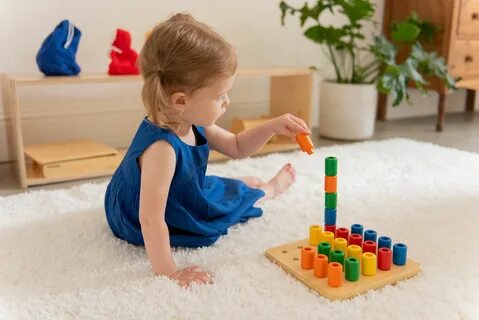Introduction
Three-year-olds are at a stage of rapid development, filled with curiosity and a desire to explore. To support their growth and keep them engaged, choosing educational toys that combine fun with learning is crucial. This article highlights must-have educational toys for 3 year olds that promote various developmental skills while ensuring hours of entertainment.
1. Interactive Building Blocks
Interactive building blocks are essential for fostering creativity and problem-solving skills. These versatile toys allow toddlers to construct various structures, enhancing spatial awareness and hand-eye coordination. Look for blocks that come in different shapes, sizes, and colors to stimulate cognitive development and encourage imaginative play.
2. Shape and Color Recognition Toys
Shape and color recognition toys help toddlers learn about different shapes and colors while developing fine motor skills. Toys like shape sorters and color-matching games teach children to categorize and identify various attributes. These activities improve cognitive skills and hand-eye coordination, making learning both fun and effective.
3. Sensory and Interactive Storybooks
Sensory and interactive storybooks engage toddlers with touch-and-feel textures, lift-the-flap elements, and sound effects. These books make reading more interactive and enjoyable, supporting early literacy development. Through interactive experiences, toddlers expand their vocabulary, improve comprehension, and develop a love for reading.
4. Musical Instruments for Toddlers
Musical instruments, such as tambourines, xylophones, and maracas, are excellent for developing rhythm and auditory skills. Playing instruments helps toddlers understand cause and effect while promoting fine motor development and creativity. Choose instruments that are durable and easy for small hands to handle.
5. Educational Puzzles
Educational puzzles offer a great way to enhance problem-solving abilities and cognitive development. Simple jigsaw puzzles, matching games, and activity boards help toddlers build patience and attention to detail. Puzzles that incorporate numbers, letters, or animals can add an extra educational element to playtime.
6. Pretend Play Sets
Pretend play sets, such as kitchen sets, doctor kits, or toolkits, encourage imaginative play and social interaction. These toys allow toddlers to explore different roles and scenarios, enhancing their creativity and language skills. Pretend play also helps children understand everyday activities and develop social skills through role-playing.
7. STEM Toys for Early Learning
STEM (Science, Technology, Engineering, and Mathematics) toys introduce foundational concepts in an engaging way. Building sets, simple coding toys, and science kits designed for toddlers promote curiosity and problem-solving skills. STEM toys encourage early exploration of scientific and technological concepts in a fun and interactive manner.
8. Activity Tables with Interactive Features
Activity tables provide a variety of interactive elements that engage toddlers in hands-on learning. With features like spinning gears, sliding beads, and musical buttons, these tables help develop fine motor skills, cognitive abilities, and sensory exploration. Activity tables with educational content offer additional learning opportunities through play.
9. Memory and Matching Games
Memory and matching games are fantastic for developing cognitive skills and concentration. These games involve matching pairs of cards or images, which improves memory and attention to detail. Memory games can be played solo or with others, fostering social interaction and cooperative play.
10. Interactive Learning Tablets
Interactive learning tablets designed for toddlers provide educational apps and games that teach basic skills such as numbers, letters, and shapes. These tablets feature touchscreens and engaging content that capture young learners’ attention. Ensure that the tablet is age-appropriate and includes parental controls for a safe learning environment.
Conclusion
Engaging your three-year-old with educational toys can greatly enhance their development while providing enjoyable play experiences. Interactive building blocks, shape and color recognition toys, and sensory storybooks support cognitive and motor skills. Musical instruments, educational puzzles, and pretend play sets foster creativity and social interaction. By incorporating these must-have educational toys into your toddler’s playtime, you can support their growth and make learning an exciting adventure.








